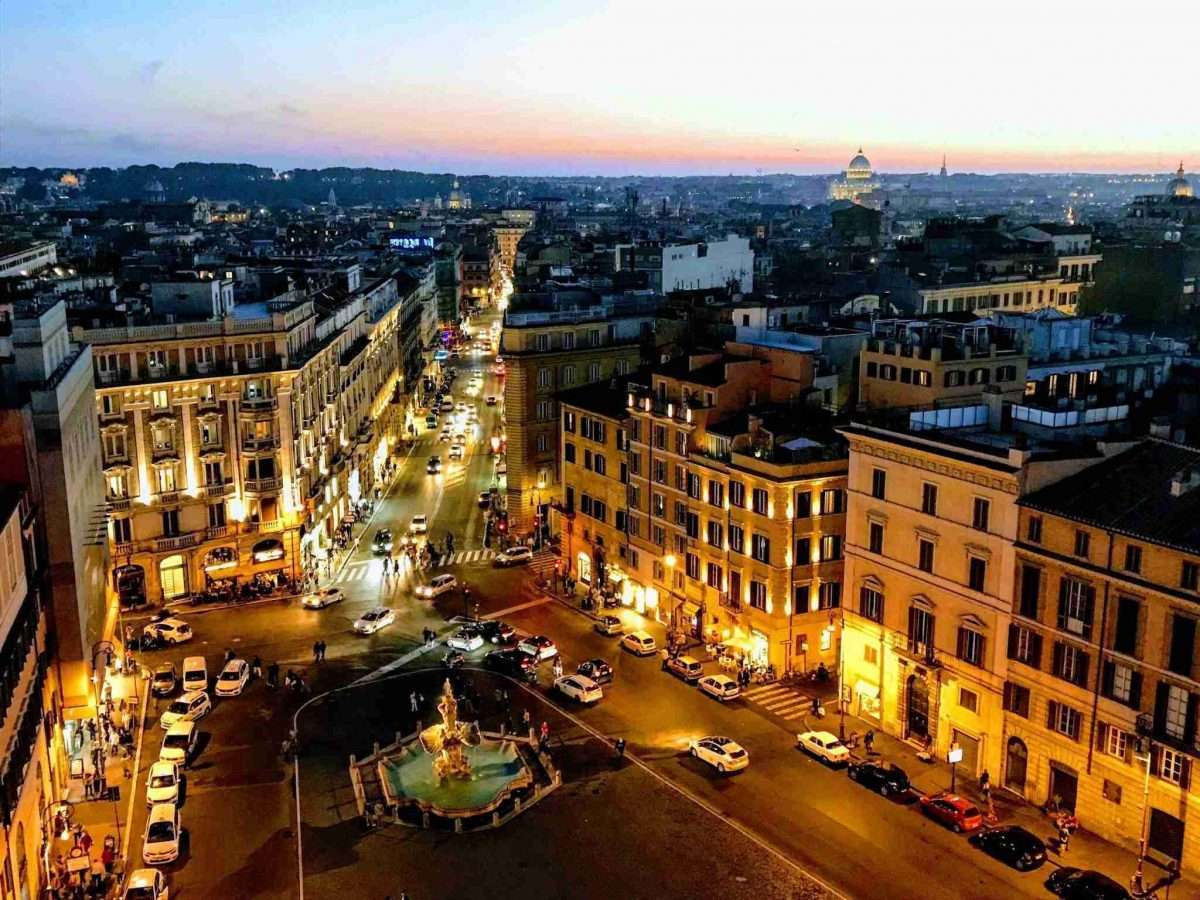
I have spent most of my life leaving places.
At 12, I was uprooted and moved to another town in the wake of my parents’ divorce. At 16, I left to be an exchange student in Europe. I distinctly remember pulling into the Frankfurt train station, a year’s worth of luggage from Germany at my feet, and telling my host brother as I exited to the platform, “I’ll probably never see you again.” I never did.
I can’t count the number of moves I went through during my college years and the lean years that followed. Now, nearly 20 years and five countries into a life in the foreign service, I feel like an expert in moving and living abroad, of saying goodbye, of moving onto the next thing.
Each transition has come with a bit of sadness. A newly empty apartment, pockmarked with holes where paintings once hung, can trigger a pit in my stomach and a few tears. But I have mostly been able to cope with these moments by knowing that a new adventure awaits.
Leaving Italy was different. And I know that I am not alone in feeling that way.
I recently learned that fellow Italy writer Georgette Jupe of Girl in Florence was leaving her adopted city for a new life in another country. In her farewell post, she tried to be upbeat, recognizing the learning opportunities on the horizon.
But I could sense some sorrow behind her words. I have been in her shoes. As I read about her move, the painful memories of my Italy exit rushed back.
It has been two years since I waved goodbye to my apartment in Rome. In fact, I am writing this post on the exact anniversary of my departure. It has taken me this long to come to terms with the fact that I left. As a writer of a blog about Italy, I was ashamed to admit that I didn’t live there anymore despite the fact that I didn’t live in Italy when I started this website.
If I didn’t write about leaving Italy then I wouldn’t have to admit it to myself and I wouldn’t have to explain it to others. Denial can keep you firmly rooted to the past. It can make the present seem like a temporary inconvenience until you are able to return to a fantasy life already in progress.
Over the course of four years, I learned the rhythms of Rome and felt fully integrated into the pace of daily life. Italy, with its structured times for doing things and its recommended hours and days for eating things, makes it easy to jump into the middle of the dance so long as you’ve been paying attention.
Do you know how hard it is to get off the dance floor when the DJ is playing all of your favorite songs?
I belong(ed) in Italy, I feel at home in Rome. I say that not with a sense of entitlement but out of a deep love for the country and how it made me feel. I woke each day with a feeling of absolute gratitude.

Leaving Italy as a non-native is tough because you never know when you will have the chance to go back. I had trouble getting out of bed the first six months after our move. I slept a lot. I drank more than usual. I got depressed looking at my bookshelves heaving with all of the Italy travelogues and museum guides that I had amassed over the years. And of course, my social media feed, which was constantly updating with photos of familiar places, filled me with dread, anger, and wistfulness.
Italy continued to be Italy, while I was expected to become something else. To evolve. To get over it. I was upset to have to leave even though I knew at the beginning that my time there was finite. Then I felt shame for not being able (or willing) to move on.
It is a pattern that I continue to try to break out of using exercise, self-help audiobooks, and the occasional attempt at meditation. Temporary distractions to fill up my days. I recently found the strength to resume reading fiction set in Italy, a pleasure I had denied myself for a while because I knew it would trigger overwhelming nostalgia and depression. That led to me finally picking up My Brilliant Friend. I tore through it and the rest of Elena Ferrante’s Neapolitan Novels over the course of two weeks. I’m so glad I did.

“You can’t go home again” is a phrase that lacks profundity until it happens to you.
Last year, when I had nearly exhausted all hope, the universe rewarded my (im)patience and longing with an invitation to visit and write about Sardinia. I used the opportunity to return to Rome, and it was thrilling to go back to my usual haunts and visit a few new ones. Some days before I embarked on my trip to Italy I had a crying fit thinking about staying on my old street but not being able to go up to my apartment. So I canceled the hotel reservation I had made at a hotel in my old neighborhood and booked a room in the center so I could play tourist rather than exiled resident.
Rome and all of the places that I loved were still where I had left them. But I would never be able to recapture the carefree feelings of those early days when it somehow felt that I would live there forever.
Life goes on. Though I have learned to deal with my depression and have even managed to visualize a future in which I will live in Italy again, I have felt a wave of uneasiness wash over me in the past several months. COVID-19 ravaged Italy and could come raging back as international travel resumes, which means that Italy could be off-limits for much longer than I or any other italophile can bear. Leaving Italy is slightly easier when you know that you can return. But it is frivolous to dwell on a desire to travel when the world is falling apart.
All I can do at this point is hope – hope that the worst days have passed and that better days will come. I can also continue to write about Italy, exploring its history and culture and my own mind and memories. Writing is the best way to keep my hope and curiosity alive. It is a positive signal to the universe that I will be ready to return to Italy as soon as the stars realign in my favor.
Last updated on May 17th, 2023Post first published on August 3, 2020






